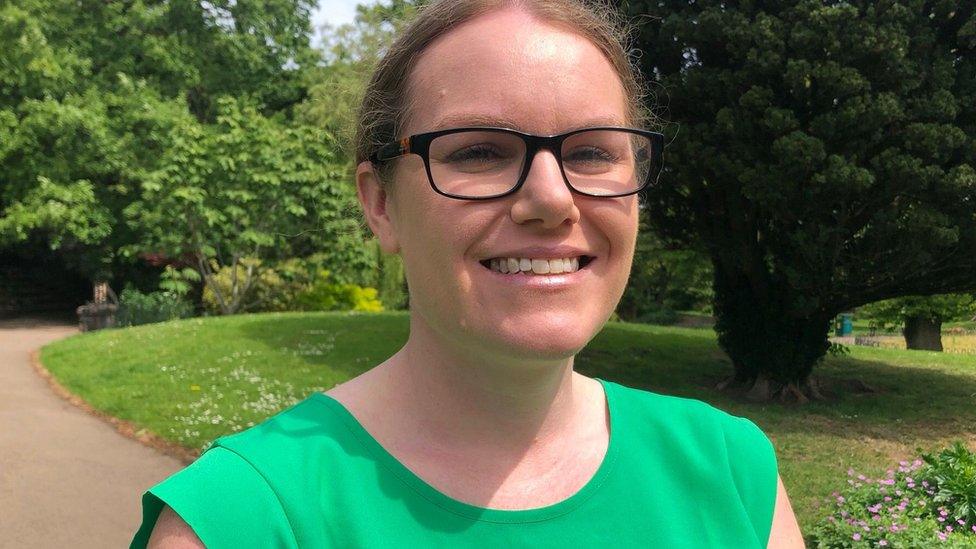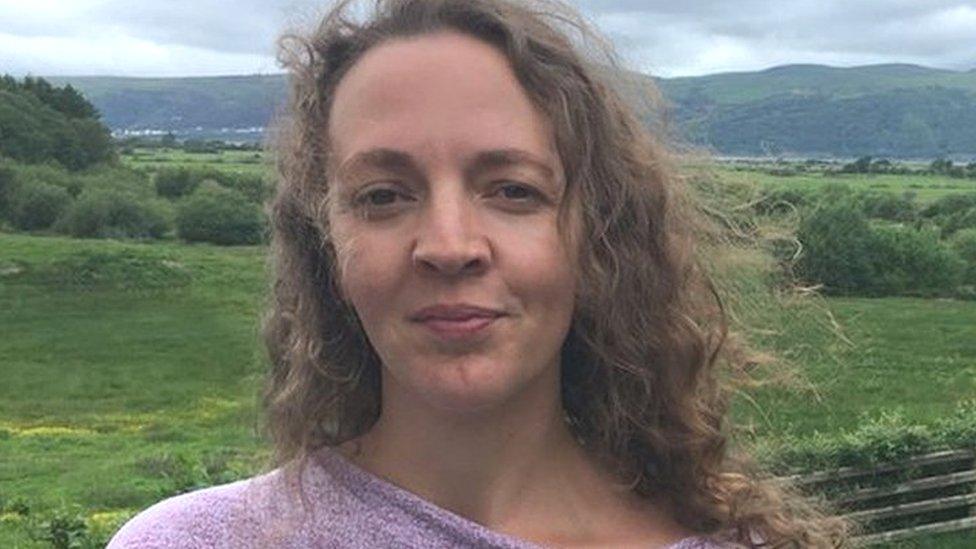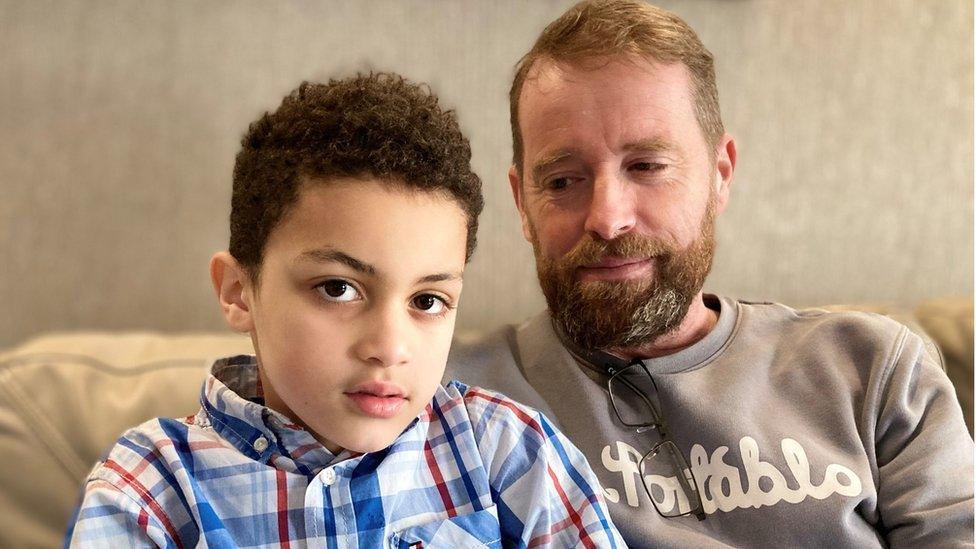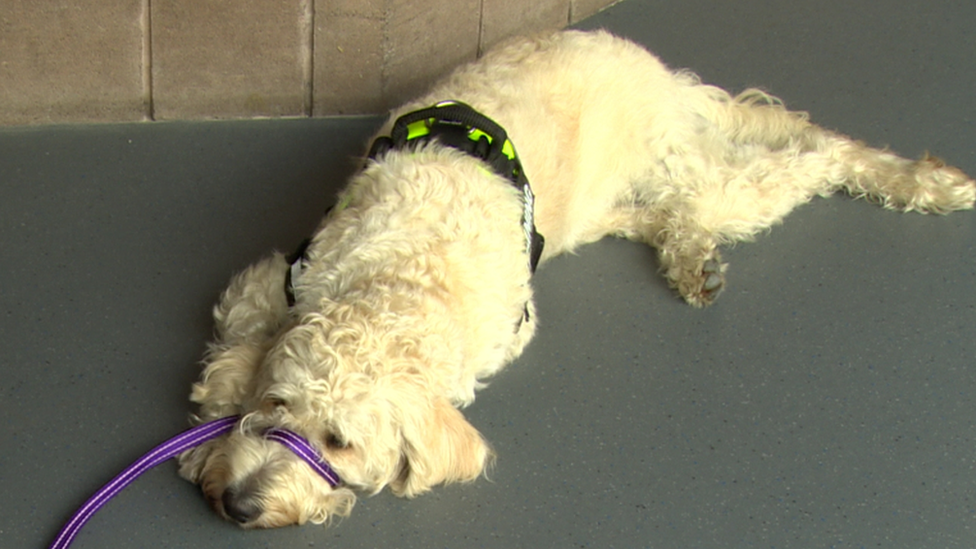Breastfeeding: NHS Wales urged to give autistic mothers better help
- Published

Kat Williams said she didn't feel her situation was believed
Autistic mothers are not getting the help they need to breastfeed, Swansea University research has found.
The report claims services "were built on a lack of understanding" of the needs and barriers some mums face.
Kat Williams, diagnosed as autistic at 32, said it was important maternity staff realised people like her exist.
The Royal College of Midwives blamed under-resourced services, but the Welsh government said breastfeeding help was prioritised by services.
Ms Williams, a mother-of-two said that despite really wanting to breastfeed both her children, struggling with it left her feeling like a failure.
"I think I was coming across as a bad patient," she said.
"The worst sort of experience from that period was a midwife came in and said I had given up far too easily, and that for me almost flipped a bit of a switch... and I was like, 'I formula feed now'," she said.
The 36-year-old, who was diagnosed as autistic after having her two children, felt staff did not believe her when she explained her difficulties with coordination, touch and pain.
What are the challenges for mothers with autism?
"When you breastfeed, it makes your uterus contract and I know that most women feel that, but it was more painful than labour," said Ms Williams.
The postgraduate student said she didn't feel believed by staff.
Ms Williams explained many women were diagnosed as autistic later in life, while others may find it hard to disclose a diagnosis to healthcare professionals at all.
She wants to see staff respond to individual needs and styles of communication, which she thinks could benefit all new parents.
"I did feel like I'd failed and again, I didn't really have the knowledge that I have now to be able to say you know, 'look, I'm going to need more help with this'."
Some clashed with health professionals who couldn't understand them, who suggested that they would report them to social services, which absolutely isn't the right thing to do
For Dr Aimee Grant from Swansea University, this is a familiar story.
The academic had been researching pregnancy and early infant feeding for almost 10 years before being diagnosed with autism in 2019.
"I'm a curious person, I thought I'd see what had already been done in this area and when I looked there really wasn't very much research" she said.
Despite some positive experiences, her new study, which looks at the experiences of more than 300 autistic mothers, found many felt they were not getting the support they needed.
"That could lead to them stopping breastfeeding. We also had some who clashed with health professionals who couldn't understand them, who suggested that they would report them to social services, which absolutely isn't the right thing to do," she added.
'Pressures'
Dr Grant recommended making communication clear and direct, ensuring mothers were not touched without explicit consent, as well as better training for healthcare professionals.
"Autistic women exist, always ask them what their needs are and believe them when they tell you," she said.
She added that it would be best for autistic people to deliver any training, but acknowledged services were stretched with a shortage of midwives.
The Royal College of Midwives (RCM) said it has been campaigning for better breastfeeding support for all mothers, including autistic women.
"With seriously under-resourced and under-staffed maternity services, this is a real challenge, and we know many women will not be getting the right levels of support as a result," said Clare Livingstone, RCM policy advisor.
She added that it was important maternity staff received appropriate training, but was aware this is not always happening due to staffing pressures.
A Welsh government spokesperson said health boards should consider individuals' circumstances when providing breastfeeding support.
"Our breastfeeding action plan, external sets out how we will support people to initiate and maintain breastfeeding when chosen", they added.

YOU SHALL GO TO THE BALL: Will Jasleen be able to pass herself off as a princess?
THE ASIAN WELSH: Meet the new generation of home-grown Indian medics

- Published24 May 2022

- Published20 February 2022

- Published27 May 2022
